Employee monitoring is becoming more and more popular as businesses look into ways they can have tighter security and a more productive workforce.
It’s true that the employee workplace has come a long way in terms of labor rights and fair wages, equal opportunity, and what questions are appropriate to ask in interviews.
However, when it comes to employees’ privacy at work, employers have the law on their side in many cases when it comes to employee monitoring.
Though Americans have constitutional protections against heavy-handed government surveillance, there are not many statutes that shield against computer surveillance in the workplace. The basic fact that work computers are the employer’s property means essentially that everything performed on them can be legally monitored.
While this is a controversial issue for some, the fact remains that the ability to checkup on employees’ computer usage is crucial for network security.
Before any further discussion on the benefits of employee monitoring, we must point out how imperative it is for a company to have all employees sign off on a computer use and monitoring policy.
Laws have traditionally been on the company’s side when it comes to computer surveillance, but employee morale and trust will soon dwindle if employees feel kept in the dark about what employers are looking at and why.
It’s understood that no one likes to be micromanaged. However, monitoring workers gives companies a multitude of benefits. This is one of the main reasons why employers have the broad legal latitude to track what workers are doing on their network. Most states don’t require employers to notify employees if they are monitoring, but recent bills have been introduced into state legislatures that would make it mandatory for companies to alert their employees.
To avoid any potential backlash, we suggest putting in place a clear and conspicuous Acceptable Use Policy (AUP) that all employees must sign that explicitly states what is being monitored.
Take a look at these statistics for an overview of how globally popular this practice is becoming:
63% of US employers monitor their employees Internet connections.
64% of employees use the web for personal reasons during work hours.
77% of major US companies monitor employees at work through:
1. Email
2. Web browsing
3. Phone calls
4. Computer files
5. Video recordings
Monitoring by management has uncovered such nefarious conduct as prostitution, gambling, and theft that occurred during business hours. Other companies have discovered enormous amounts of time spent watching cat videos on YouTube and eBay shopping. Employee hijinks in cyberspace can cause trouble for a corporation beyond the activities of pornography or online shopping. For example, inappropriate social media posts can involve the company in expensive lawsuits or create PR headaches that can severely damage a company’s reputation.
More and more companies are creating Social Media Disclosure policies for employees to sign. These policies outline what can and cannot be posted about the employer online, thereby preventing employees from tarnishing the name of the company they work for and discussing other proprietary or private information on their personal accounts. In these policies, employers also outline whether employees can access social media at work or on company devices.
An estimated 60% of companies globally monitored social media accounts in 2015.
Here’s the top two reasons why employers monitor their staff’s online activity:
1. Monitor productivity – Idle time shows how often an employee is away from their desk.
2. Safeguard sensitive company data.
No one here is saying that employees shouldn’t take moments to stop and catch their breath, otherwise there’s often a strong chance employees can get pushed past their breaking point. By identifying where productivity can improve, employers have the opportunity to mentor unmotivated or struggling employees. The bigger issues come from unsuspecting employees clicking on phishing attempts in their email accounts, but it can even happen by visiting what appears to be a legitimate website.
48% of the worst security breaches at large companies were perpetrated by employees, either knowingly or unknowingly.
Today, the more “surfing” an employee does, the riskier it is for your network. It’s not enough to rely on common sense alone to protect your computer from malware, phishing, and identity theft tricks. If we were only talking about avoiding those spammy email attachments and the annoying pop-up ads, that might fly for some savvy Internet users. But today’s cyber criminals can insert malware into ads on safe websites without you ever having to click on anything and it can infect your entire system.
So for a business, the benefits of having a proactive arsenal of security software tactics that are deployed continually to protect your sensitive data and network is hopefully evident.
But honestly, the need to clue in your employees on why their computer activity is being monitored along with the necessity of training your employees on how to safeguard their computer, aka security awareness training, are elements just as critical to any company’s long-term security.
Business Information Solutions, Inc. now offers security and compliance training for your employees. With our in depth courses, your staff can stay educated on how to avoid the vast potential threats and learn hands on from simulated attacks. In addition to our BIS SecureNow! training, our proactive network security solutions range from mobile device security to top of the line email encryption and spam filtering. Contact us today to schedule a free consultation and demo of our products and services.
Sources:
Privacy at Work: Know Your Rights
[code-snippet name=”disable-blog-featured-image”]











